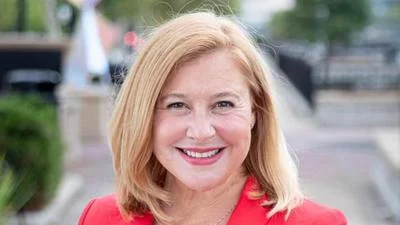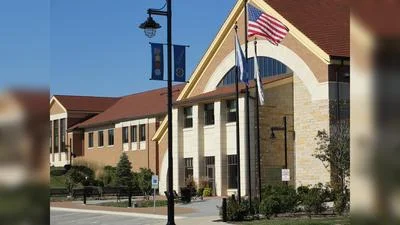Daphne Sandouka, Ceo at Ecker Center for Behavioral Health, Inc. | Linkedin
Daphne Sandouka, Ceo at Ecker Center for Behavioral Health, Inc. | Linkedin
The listed appropriations included two grants of $500,000, plus an additional grant of $400,000, all designated for programs or services funded by the State of Illinois.
These appropriations represent state-level funding authorized by lawmakers, reflecting what was approved in the budget, not necessarily disbursed. The funds cover only State of Illinois support and exclude federal, local, or other public sources.
Founded in 1955, Ecker Center For Behavioral Health Inc states that its mission is: “Ecker Center for Behavioral Health's mission is to optimize the well-being of individuals and communities through the delivery of accessible, comprehensive and quality behavioral health care which includes prevention, education and intervention.”
You can learn more about the organization at its website.
In its most recent IRS Form 990 filing filing for tax year 2024, the organization reported $11,181,400 in total revenue. Of that, $6,023,630 came from government grants including federal, state, or local sources, making up 53.9% of total revenue.
The nonprofit listed $6,207,400 in contributions overall. It also reported $6,702 in non-cash contributions, such as donated goods or services, and $135,311 categorized under other contributions, which may include restricted donations, pledges, or bequests.
At the beginning of 2024, Ecker Center For Behavioral Health Inc had $5,095,550 in assets. By the end of 2024, that figure had changed to $4,833,860, indicating a 5.1% decline in overall holdings.
According to its filing, public funding to Ecker Center For Behavioral Health Inc increased in the last year. The group received $5,604,940 in government grants in 2023, compared to $6,023,630 in 2024—an increase of 7.5% year-over-year.
However, a Chicago City Wire analysis found that IRS filings frequently contain discrepancies when compared with publicly disclosed government grant reports and budgets.
Ecker Center For Behavioral Health Inc is one of hundreds of nonprofits across Illinois that receive substantial support from state taxpayers while also fundraising privately.
In 2025, Illinois lawmakers introduced House Bill 1266, also known as the Department of Government Efficiency (DOGE) Act. The proposal would create a new oversight body within the Office of the Auditor General tasked with identifying cost-saving measures, reviewing agency performance, and advising on audit priorities. If passed, DOGE could bring additional scrutiny and performance evaluation to taxpayer-funded organizations.
According to ProPublica, Illinois has more than 78,000 active tax-exempt organizations, including nearly 60,000 classified as charitable nonprofits. In their most recent IRS filings, these groups reported a combined revenue exceeding $156 billion.
| Fiscal Year | Total Grants/Contracts | Total Taxpayer $$ |
|---|---|---|
| 2024 | 3 | $1,300,000 |
| Term | Name | Title |
|---|---|---|
| 2024-2024 | Aaron Sellers | Board Member |
| 2024-2024 | Alan P Kirk | Vice Chairman |
| 2024-2024 | Alan M Polse | Former Board Member |
| 2024-2024 | Ann Boisclair | Board Member |
| 2024-2024 | Brenda Reilly | Advanced Practice Nurse |
| 2024-2024 | Daphne Sandouka | Ceo |
| 2024-2024 | David Conroy | Board Member |
| 2024-2024 | Linda M Siete | Board Member |
| 2024-2024 | Meghan Elizabeth Early | Chairperson |
| 2024-2024 | Patricia Arroyo | Secretary |
| 2024-2024 | Ramona M Grauzinis | Chief Hr Officer |
| 2024-2024 | Robert Steffen | Board Member |
| 2024-2024 | Robert Villa | Former Board Member |
| 2024-2024 | Ron Korte | Board Member |
| 2024-2024 | Stephen D Tousey | Treasurer |
| 2024-2024 | Tiffany Tyson | Board Member |
| 2024-2024 | Timothy Q Sheldon | Board Member |






 Alerts Sign-up
Alerts Sign-up